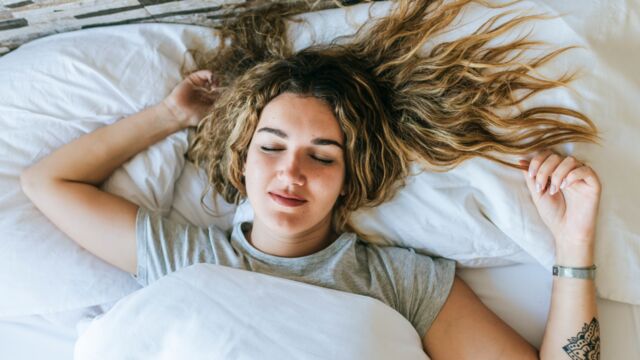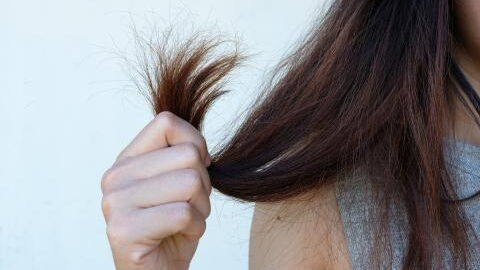While some of us are so used to tying our hair before going to sleep that we can't even imagine not doing it, others, on the contrary, prefer to sleep with their hair down. We all know that it's good to moisturize with a cream and serum before bed so your skin regenerates during sleep, but what are we supposed to do with our hair?
Discover our latest podcast
Well, it all depends on your hair type and the effect you're looking for.
Tying your hair up to protect it
The friction between hair fibres and a pillow tends to damage it. Why? Because throughout the night, your hair is flattened under your head and moves as you move while you sleep. This is called mechanical aggression. This principle is most frequently observed in fine, curly and bleached hair, which are fragile by nature.
The solution? Tie your hair delicately. Try not to tie your hair with a rigid rubber band. We advise you to use a big scrunchy or a flat hair clip to hold your hair on top of your head. The way you tie your hair is equally important. It's better to twist it on itself than to have it in a messy bun.
For optimal hair protection, you can also invest in a satin pillowcase. This natural material allows your hair to slide, avoiding friction.
Tying your hair to prevent it from getting tangled
When you move around in your sleep, your hair, especially if it's long, tends to get tangled. The solution? Detangling it before bedtime using a natural bristle brush or a tangle teezer. Then, braid your hair down to the tips. But make sure the braid isn't too tight! It's best to have a loose braid so your hair doesn't get too sensitive. In addition to protecting your hair, it'll make it wavy.
Tying your hair to give it volume
Before bedtime, certain hairstyles are great to give your hair more volume. Whether it's braids, twists or buns, there are hairstyles that help you give your hair more volume or waves the next day.
Letting your hair breathe
Even if most of our advice is for tying your hair at night, you shouldn't forget that your scalp needs to breathe. The same way we need to go makeup-free from time to time so our skin can regenerate, hair should not be continually suffocated by styling products or overly tight hairstyles. Even if you sleep with your hair tied up, make sure to let your down during the day.
Remember that healthy hair is hair that is hydrated and cared for using natural, non-abrasive products. If you live by this, your hair will be soft and shiny and will even tend to grow faster.















